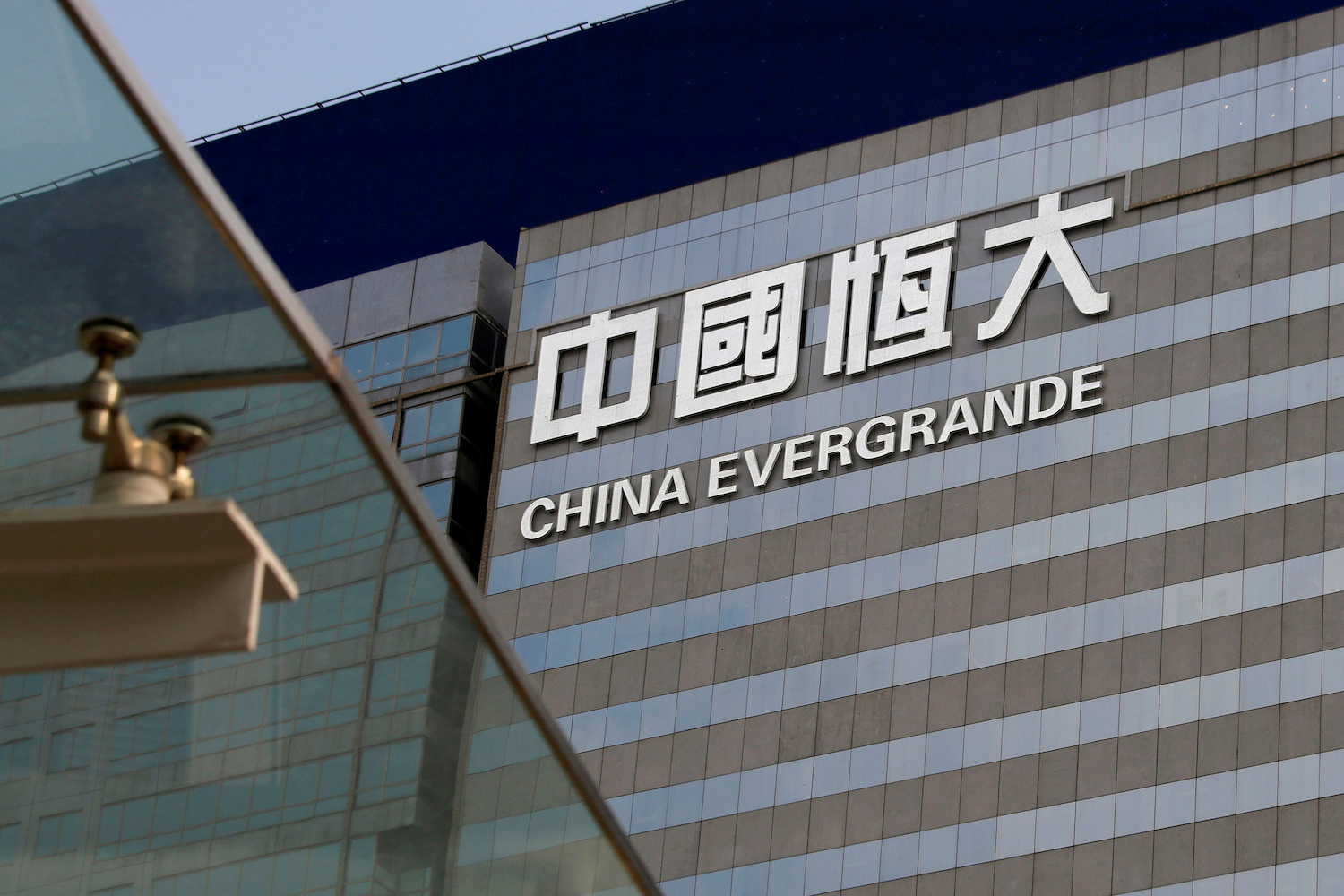A cry for help by debt-laden China Evergrande Group, the country’s second largest property developer, caused tremors in financial markets that sent its stocks and bonds tumbling as the issuer pleaded for quick state approval of a restructuring plan.
The stock price fell as much as 14.5% on Friday and bonds tanked by 7-9 points following these reports.
The company’s application, which has been hanging for four years, is critical to avoid a cash crunch that could lead to systemic risks, according to people familiar with the matter.
China Evergrande – the country’s most indebted developer – made the request in a letter to the government of southern Guangdong province on August 24, according to three people who confirmed the letter’s authenticity to Reuters.
Evergrande said late on Thursday that a document circulating online about a rejig of its subsidiary Hengda Real Estate was a fabrication and defamatory. A representative said it has reported that matter to the authorities.
Sources said Evergrande’s letter had asked the local government to support its plan to gain a listing for Hengda on China’s A-share market by buying a company that was already listed in Shenzhen. The plan was announced in 2016 but has yet to receive regulatory approval.
It did not spell out exactly what sort of support it was seeking, but urged the local government to pay attention to the matter and help to coordinate some progress on the listing.
Late on Thursday, S&P Global revised its rating to negative from stable due to the increasing liquidity pressure on the company over the next six months, partly due to the imbalance in the capital structure. It also reflected expectation that Evergrande’s margin will decline, weighing on its leverage.
“We are not a fan of EVERRE/TIANHL series given its opaque corporate communication and high headline risk,” said Agnes Wong, BNP Paribas Head of Asia Credit Strategy & Trading Desk Analysts.
“However, EVERRE/TIANHL defaults is not our base case, considering its connections to the high net worth. It has always been the politically correct role model to CCP (took part in soccer, new energy etc) and the detrimental impact it may cast to the society and financial market if it fails.”
Evergrande said in the letter that Hengda must repay 130 billion yuan ($19.05 billion) it raised from investors for the plan. Those funds and a bonus of 13.7 billion yuan must be paid before January 31, 2021, it said.
“EVERRE’s deleveraging path can be lengthy, and its funding access can be negatively impacted in the near term given the headlines, [so] we believe the company should have some negotiation power against the government and the strategic investors with regard to this RMB130b investment put due Jan-21,” BNP’s Wong said.
If the ‘reverse takeover’ falls apart, it may lead to a series of systematic risks, Evergrande said in the letter. Such plans to take over already-listed firms are also sometimes referred to as “backdoor listings”.
“In our view, the leaked document does not provide any new information on Evergrande. Rather it reminds the market of the risk the company is facing and somewhat challenges the “too big to fail” concept,” Chuanyi Zhou, a credit analyst at Lucror Analytics, said, while maintaining a sell recommendation on the bond.
“The event may create some speculative opportunities on its USD Notes. However, the uncertainties remain in the next four months before 31 January 2021 when the strategic investors can exercise their put options.”
This would increase the debt level of Hengda to more than 90%, ultimately lead to defaults of the group and increase social instability due to job losses, the letter said.
China’s policymakers have become increasingly concerned about debt growth among property developers as they look to contain risks to the financial system, with new rules tightening their bond sales to take effect from next year.
Massive debt
Evergrande had outstanding liabilities and interest amounting to 835.5 billion yuan (over $122 billion) as of end June, involving 128 banks and 121 non-banking institutions, according to the letter.
Evergrande said earlier this month that it offered a 30% discount on properties for a month amid government moves to control the level of liquidity in the real estate market.
The property sector is a major economic growth driver in China, but policymakers are concerned about the risks of price bubbles after emergency stimulus measures and interest rate cuts earlier this year to reduce the economic fallout from the coronavirus crisis.
Evergrande has been seeking a backdoor listing by a planned injection of almost all of its property assets into Shenzhen Special Economic Zone Real Estate & Properties Group Co Ltd <000029.SZ>.
($1 = 6.8237 Chinese yuan renminbi)
With reporting for Reuters by Clare Jim in Hong Kong; plus Zhang Yan and Yawen Chen in Beijing.
























